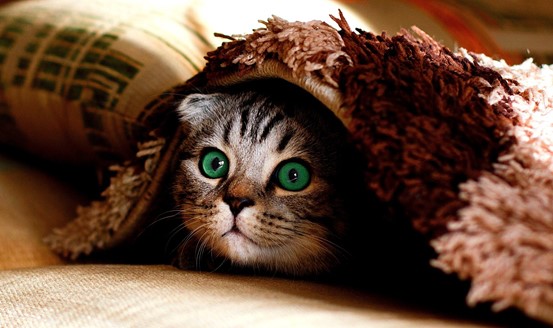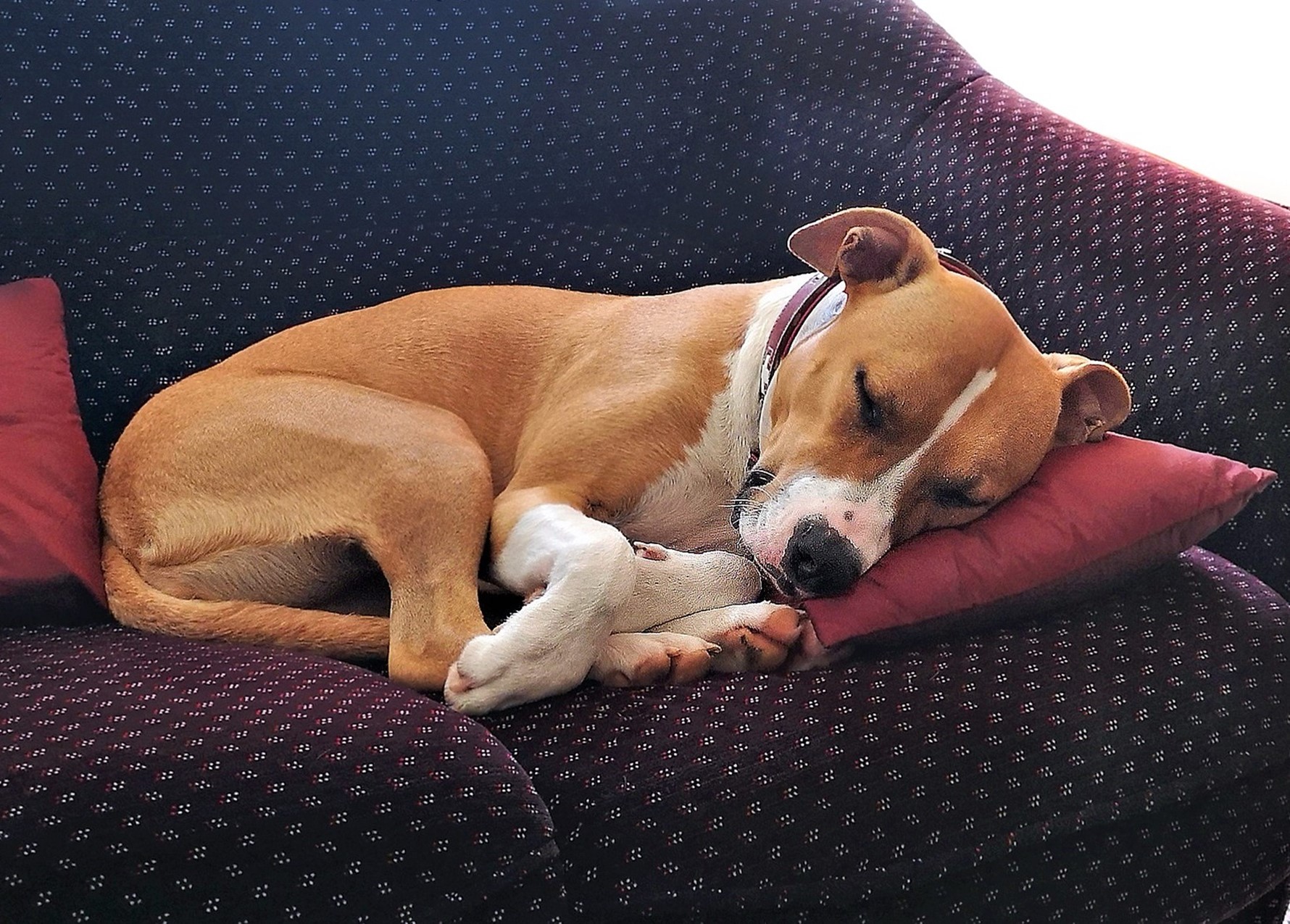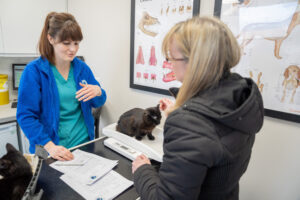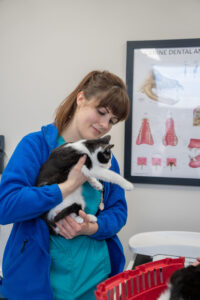Fireworks and pets sadly do not go well together and safeguarding your pets around Bonfire Night can be a difficult job. Fireworks often cause stress, anxiety and sometimes even aggression in pets. Keep reading for tips on preparing your home and pet for the upcoming fireworks season.
Firework Fear
A 2018 report showed that around 40% of cat and dog owners reported that their pet is afraid of fireworks. It’s understandable that loud bangs and high pitched sounds can be scary for our pets but being prepared and with the right care, you can keep your pet calm and help them to cope.
Signs Of Stress In Pets
If you know your pet becomes stressed and need some help, your vet can offer advice and may well prescribe calming medication such as Nutricalm. If you have a new pet or you aren’t sure, stressed pets can often exhibit the following behaviour:

Dogs:
- Persistent, excessive barking
- Refusing to eat
- Shaking or trembling
- Pacing around and panting excessively
- Not leaving the owners side
- Hiding
- Trying to escape or run away
- Going to the toilet in the house
- Destructive behaviour such as chewing furniture
Cats:
- Hiding away
- Trying to escape or run away
- Going to the toilet around the house, instead of outside or in their litter box
- Refusing food
Rabbits:
- Stamping hind feet
- Staying motionless
- Trying to escape
What Can I Do To Ease My Pets’ Stress?
1. Plug in a diffuser
Pheromone sprays and diffusers such as Feliway and Adaptil can help ease pet stress and anxiety. Buy these in advance of a firework event, ideally a couple of weeks. Placing one or two around the house.
2. Walk dogs early
Avoid evening or late night walks so your dog isn’t outside when the fireworks start. Even if they don’t normally show fear around fireworks, dogs can be easily startled by loud, unexpected bangs. Gradually alter your normal walking routine about a week before fireworks occasions to get your dog used to the change. Make sure you keep them on a lead.
3. Keep cats inside
If your cat is an outdoor cat, it may be worth trying to keep them in when they come home earlier in the day. Otherwise, there’s a chance they will still be out when the fireworks start and may become scared and anxious.
4. Create a safe space
Creating a safe space in your house gives your pet somewhere calm and familiar to retreat to when they get scared. Fill a room or corner with food and water bowls, their favourite toys and bedding to create a pet-friendly haven.
6. Close windows, curtains, and blinds
Keep your windows shut and close any curtains or blinds to soundproof your home and shut out bright flashes that can scare pets. Don’t forget to lock the cat flap to prevent your cat from going outside.
7. Turn up the radio or TV
Turning on the radio or TV not only helps mask the loud bangs and crackles of fireworks but also provides a familiar noise to help distract your pet. Play calming music or turn on a programme you watch regularly to help reassure your pet.
8. Consider bringing rabbit hutches indoors
Due to their sensitive nature, outdoor rabbits suffer the most when it comes to fireworks. One option is to bring their hutch inside during fireworks season. This could be in the house, garage, or shed and provides a solid barrier from the noise outside, helping to reduce their stress levels. If you’re unable to move them inside, lay a few thick blankets over their hutch to help muffle the bangs and keep them calm. Don’t forget to leave a suitable gap for ventilation.
9. Give rabbits extra bedding
Rabbits tend to burrow when they get scared, so adding some extra bedding into their hutch gives them plenty to hide in and helps them feel protected against the noise. You may also want to give them some extra hideaways, such as a cardboard box filled with hay, to ensure they have lots of opportunities to take refuge from the noise.
10. Stay at home
If at all possible, try to ensure that somebody is at home. This will help soothe your pet’s fears. Left on their own, pets could become very stressed and destructive in your absence. Keep talking to your pet and give them plenty of love and attention during the fireworks. Knowing you’re there to protect them will reassure them and keep them calm.
11. Give them a treat
A tasty treat can make a world of difference to your pet’s stress levels and it’ll also reward their good behaviour and bravery. A stuffed chew toy can keep dogs occupied for hours, while a treat puzzle ball can have the same effect on cats and rabbits. These stimulating toys help take their mind off what’s going on around them and can even help them forget their fears.
12. Make sure they’re microchipped
Spooked pets can run away, especially cats, so make sure they’re microchipped to make them easily identifiable. If your pet is already microchipped, make sure your contact details are up to date so you can be contacted straight away.
Desensitising Your Dog To Loud Noises
It is often dogs that are affected most severely by loud noises. In addition to the tips above, going through the process of desensitising your dog to loud noises can be a good, long-term solution.
There is lots of advice available on how to desensitise your dog but the most important part to understand is that the process needs to be gradual and often can take months.
The training needs to take place indoors and you will need access to sound effects such as fireworks, thunder or a vacuum cleaner. The training starts by playing the various sounds at a low volume, watching out for signs of stress in your dog.
The volume is then gradually increased until the dog becomes used to the noise at each level and doesn’t show any signs of anxiety. Sounds are played in this way daily, over a period of weeks until your dog no longer reacts – even at a high volume.
If your dog is still stressed by loud noises after trying these steps, you should contact your vet for further advice.
Don’t Forget…
The morning after a nearby fireworks display, check your garden for any firework remnants fallout that may cause harm. Fireworks contain highly toxic ingredients that can be fatal to your pet if eaten, so remember to check your garden for debris and keep an eye out on your dog walks.
If you have any concerns over stress and anxiety in your pet, please contact us.
St Kitts Veterinary Centre: 01252 844044
Basingstoke Veterinary Centre: 01256 844944
Crookham Park Veterinary Centre: 01252 913990
Firgrove Veterinary Centre: 01252 877799







